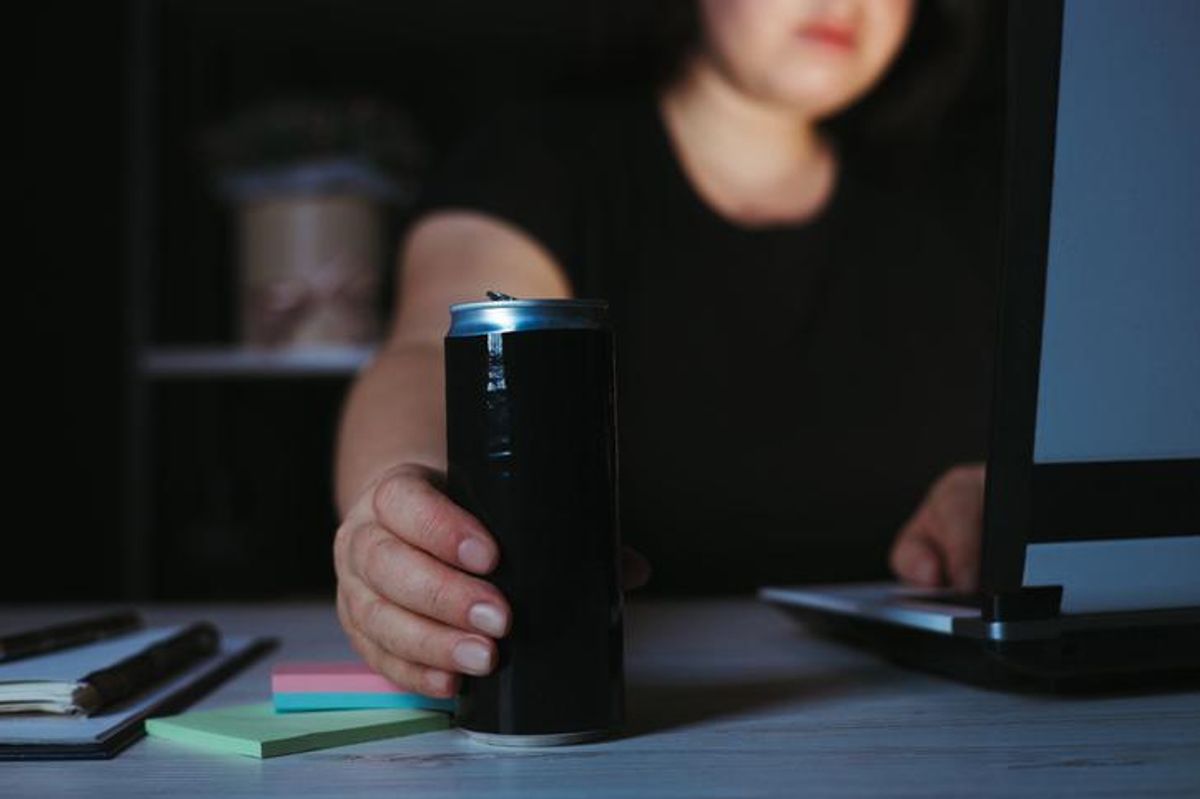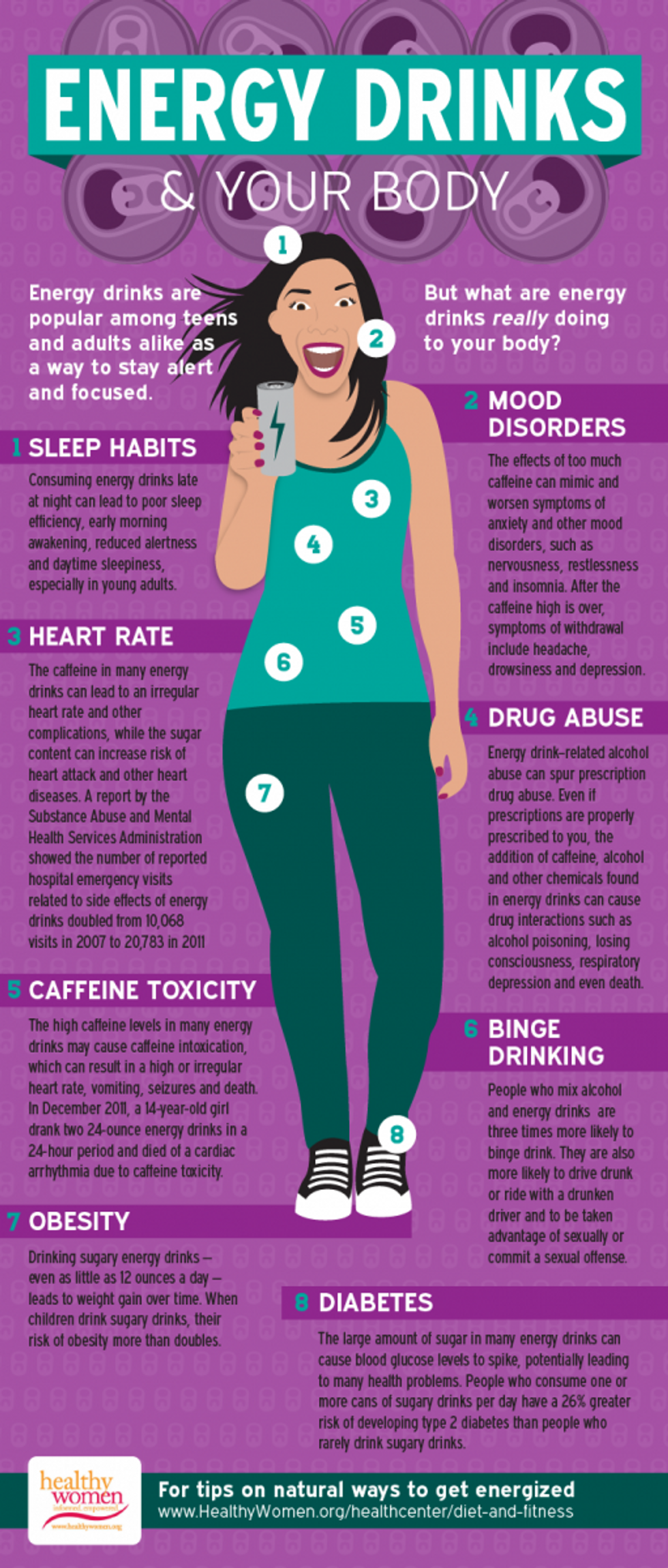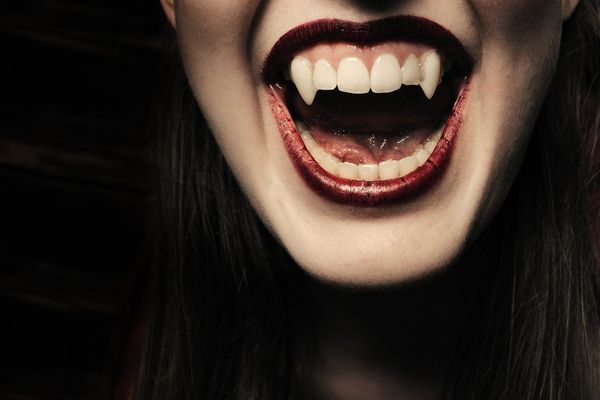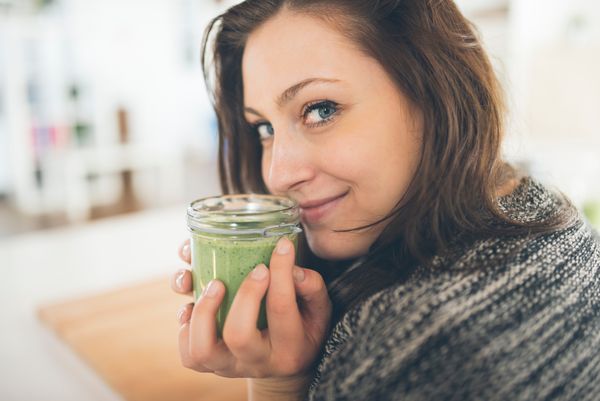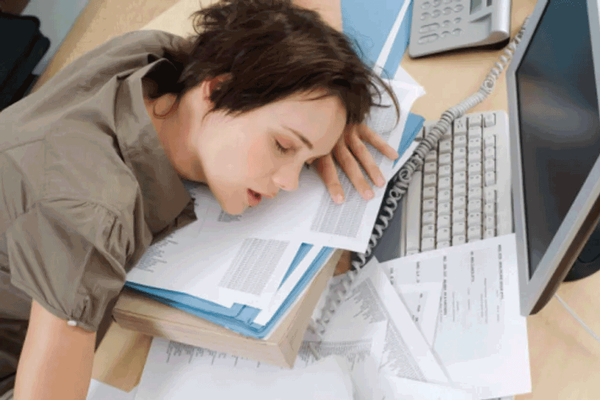Energy drinks are not new and in fact have been around for over 100 years—in the late 1800s, Coca-Cola was introduced as an "energy booster." Its original recipe combined the stimulants cocaine and caffeine in the form of coca leaves and kola nut extracts. That mix was changed in 1904, removing active cocaine from the mix. In coming years, additional brands of energy boosters with various stimulants would come and go.
Fast forward to the late 1980s and the launch of Red Bull in Europe.
Red Bull is credited by some with gearing up the modern energy craze, hitting the United States in 1997 with a unique marketing strategy that targeted sleep-deprived and party-hearty university students and offered them free products to fuel their college parties. It wasn't long before vodka became the favored Red Bull mixer.
Young adults may have started the trend of mixing energy drinks with liquor to get a buzz that keeps going all night, but the fad has gone mainstream, with bars and restaurants offering up their own versions of extremely sweet, highly caffeinated elixirs.
According to health experts, some of these fizzy, boozy mixes should come with a warning label.
It goes without saying that guzzling caffeine-spiked beverages for hours will keep you tossing and turning when you should be getting all-important restorative sleep. In the short term, that caffeine-fueled lack of sleep can leave you groggy and puffy-eyed, and over time sleep deprivation can cause serious side effects, including mood disorders. In fact, too much caffeine alone may put you at risk for conditions like anxiety, headache and depression.
In addition, studies show that consumption of energy drinks is associated with an increase in risky behaviors, such as binge drinking, which can lead to hospitalization and even death, especially when high levels of caffeine are consumed with alcohol.
Because energy drink cocktails include both a stimulant (caffeine) and a depressant (alcohol), the concoction hits the heart hard, as the muscle struggles to regulate the chemicals' effects. Statistics from the Substance Abuse and Mental Health Services Administration indicate there were more than 20,000 emergency room visits in 2011 related to energy drink consumption. In some of these cases, patients were admitted for caffeine toxicity, which can result in cardiac arrhythmia and even death.
Sugar is the second-most harmful substance you'll find in energy drinks. Manufacturers tend to load these beverages with the sweet stuff. Studies have shown that intake of intensely sweet drinks lights up the dopamine centers of the brain in some individuals the same way cocaine does—and in sensitive people may even surpass the cocaine reward. Excess sugar consumption over time can lead to chronic and potentially deadly conditions including obesity and diabetes.
While imbibing the occasional energy drink without alcohol is not likely to harm an otherwise healthy person, making a regular habit of it can be dangerous.

